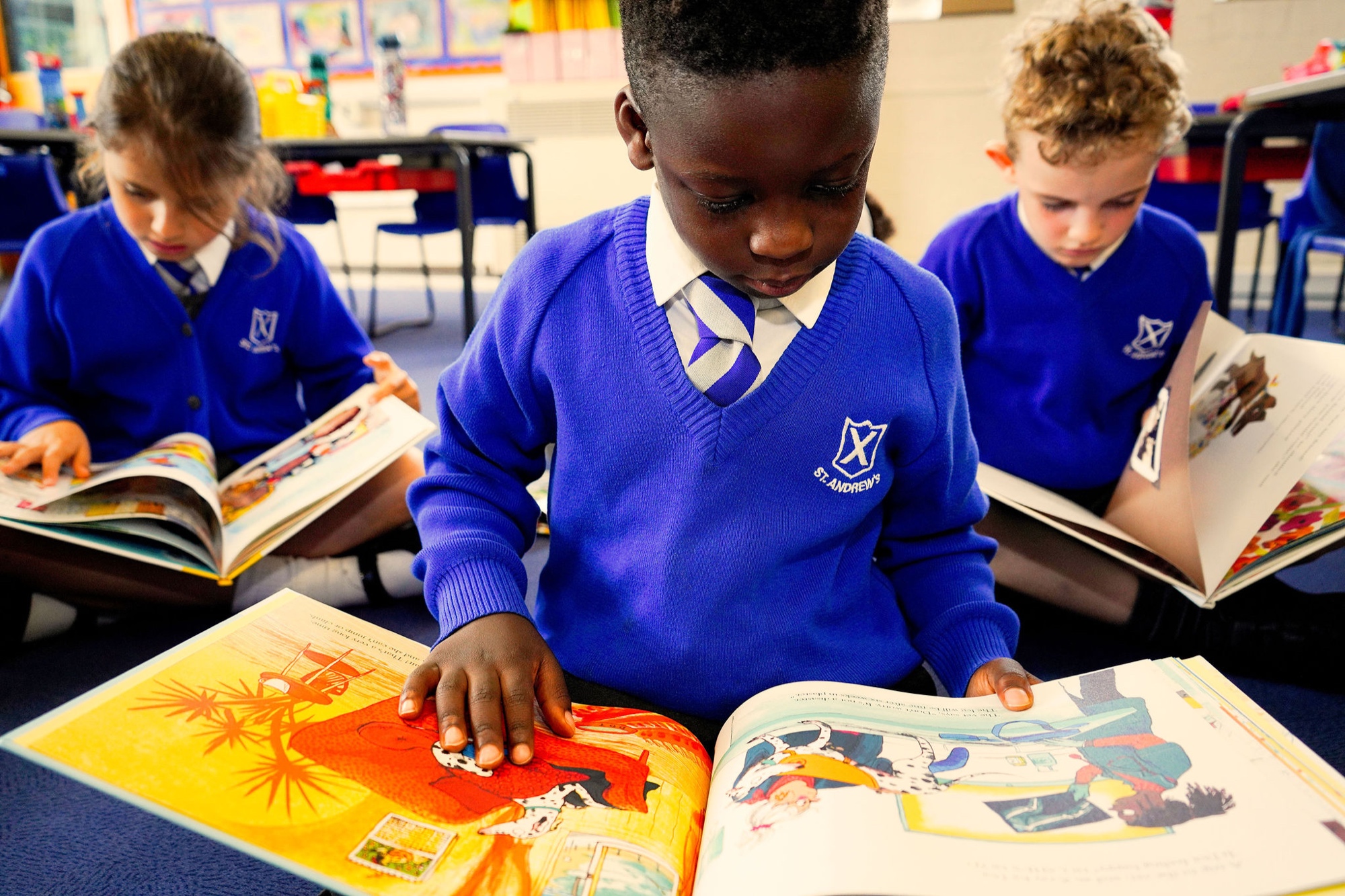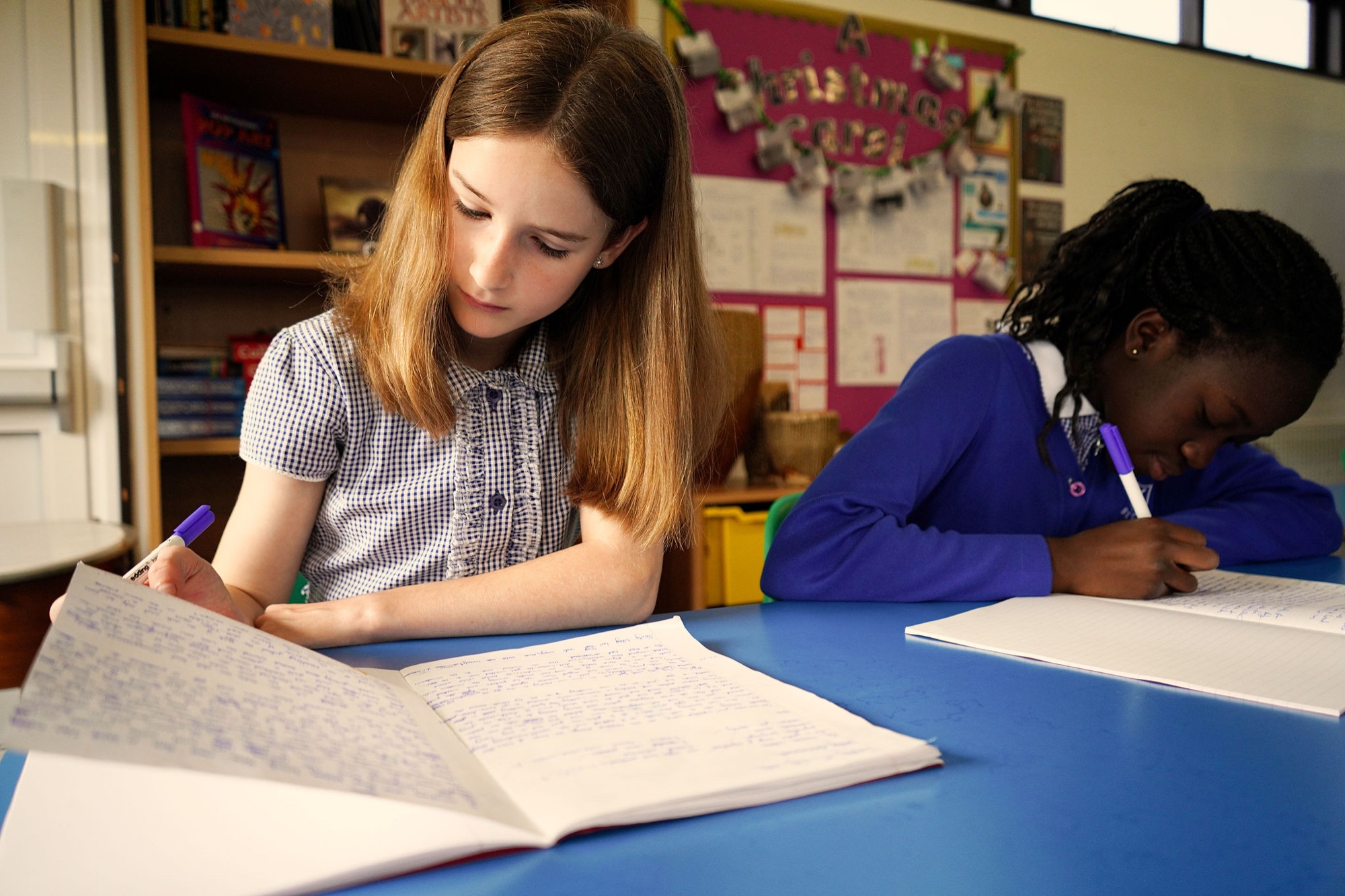Reading
Implementation
Ensuring reading for pleasure
‘Reading for pleasure is the single most important indicator of a child’s success.’ (OECD 2002)
‘The will influences the skill and vice versa.’ (OECD 2010)
Children in Y1-6 take part in Guided Reading lessons across the week, where children are exposed to a range of different texts and can demonstrate their understanding of language. Many strategies are taught by teachers, such as echo reading, reciprocal reading techniques and partner talk, to support skills in comprehension, prosody and summarising. These are used by teachers to ensure all learners succeed in reading high quality and challenging texts.
All children have a home reading record. The parent/carer records comments to share with the adults in school and the adults will write in this on a regular basis to ensure communication between home and school.
As the children progress through the school, they are encouraged to write their own comments and keep a list of the books/authors that they have read.
We value reading for pleasure highly and work hard as a school to grow our Reading for Pleasure pedagogy.
Teachers read to children every day. We choose these books carefully as we want children to experience a wide range of books, including books that reflect the children at St Andrew’s and our local community as well as books that open windows into other worlds and cultures.
Books used in our English lessons, as well as carefully chosen read alouds, form a reading spine in each year group. They are often linked to wider curriculum learning in Science, PSHE, History or Geography with an increased focus on non-fiction to engage all pupils.
Well-stocked book areas
Every classroom has an inviting book corner that encourages a love for reading. The English Team regular monitors these book areas, to ensure there are titles in which all our children feel represented. Teachers talk passionately about new and existing titles, to entice children to read a wide range of books. We include a range of dyslexia-friendly texts and books are chosen to encourage all pupils, including those with SEND and low attainers, to become engaged in quality book-talk.
School book corners are made readily available for classes to use and children across the school have regular opportunities to engage with a wide range of Reading for Pleasure events (book fairs, author workshops, national events etc). We use various resources to grow our teachers’ knowledge of current books, the most recent research and to grow our own Reading for Pleasure practice.
Enrichment in reading
- We currently run two Book Clubs in Year 4 which will be opened to our Year 5 pupils this year
- We also run a Reading Mentor program which pairs Y5 boys with Y10 students at Enfield Grammar School. This lasts for two terms and allows those involved to build relationships with older peers and make the most of cultural capital opportunities, as well as develop a love of books.
- All our children have reading buddy time with younger/older children, a wonderful and powerful way for the mixed age children to share stories, poems, rhymes, songs and books together.
- Classes visit the local library regularly throughout the school year to become familiar with the purpose of the town library, as well as promoting a love of books in the home.
- Children are exposed to bible stories in Collective Worship throughout the week, as well as tales and stories which have a message or have a link to our school values.
- Our school community supports our love of reading. Parents kindly buy books from the class wish list every Christmas, enabling every class to start the new year with a beautiful set of new books
- The school runs book fairs, book sales and free donated book sales throughout the year. These are kindly donated by our past and present families
 EYFS and Key Stage One
EYFS and Key Stage One
A love of books is supported by a variety of teaching methods, beginning with a structured phonics programme (Little Wandle Letter & Sounds) in the early stages of learning to read. Daily phonics lessons take place in Reception and Year 1. In Year 2, these lessons continue, but the emphasis is more on learning to read and spell words from specific word families, root words and spelling patterns.
One-to-one reading in school is crucial to the support of the early development of skills and we value the supportive role of parents when reading at home.
In Year 2, some of the key comprehension skills are taught through whole class texts or extracts. This enables the child to have experience of reading a range of texts, as well as helping them to increase their understanding of vocabulary.
Key Stage Two
In Key Stage Two, teachers use higher order questioning techniques, mostly modelled on Bloom’s Taxonomy to engage children in critical thinking about texts. For some very able children in Year 6, the children lead their own discussions on the text they are reading.
Guided Reading and independent reading takes place every day. In addition to this, all teachers read stories to the class throughout the week.
Whole class texts and extracts are used in English lessons. These are chosen carefully to engage our children and offer a rich and varied language. Whole class texts enable the teacher to teach key comprehension skills where needed, as well as immerse the class in a range of modern and classic texts.
Newspapers are delivered every fortnight in the upper school and are often used as guided reading texts.
Reading buddies
Older children read with some younger children to boost their confidence with reading. Our class buddy system also supports reading for pleasure across the school.
 Writing
Writing
Our English lessons are based around high quality texts. Over a week or more, children will be introduced to a book or extract. They look for the key features and structure of the writing to understand the genre, consider the writer’s use of language and work towards producing their own piece of writing. This reading into writing model is followed throughout the school. Work is drafted, proof-read, edited, improved and refined, through whole class, guided and independent work. The rules of Grammar, Punctuation and Spelling are taught as part the lessons, in line with the curriculum for children in Years 1 to 6. In addition, children in Year 6 follow an online SPAG programme, where they can practise these skills every week.
Children practise their speaking and listening skills in all areas of the curriculum. However, much emphasis is placed on drama and role-play in our Church services, class led Collective Worship, English lessons and some foundation subject units. Spellings are taught within the context of the lessons and homework for spellings is given out, based on the letter string or rule taught that week.
The children follow a cursive handwriting script, which is taught from Year 1. All children learn to form each lower case letter from the line, so that joining letters together becomes easier. It is a requirement for Year 6 pupils to demonstrate a cursive writing style, in order to achieve an expected level in writing.
Book Week, Arts Week and Parliament Week
At St. Andrew’s School, we enjoy a variety of themed weeks. They provide enriched opportunities for children to develop and master their speaking and listening skills through debating, writing and performing speeches, taking part in drama activities and listening to a range of thought-provoking stories.
